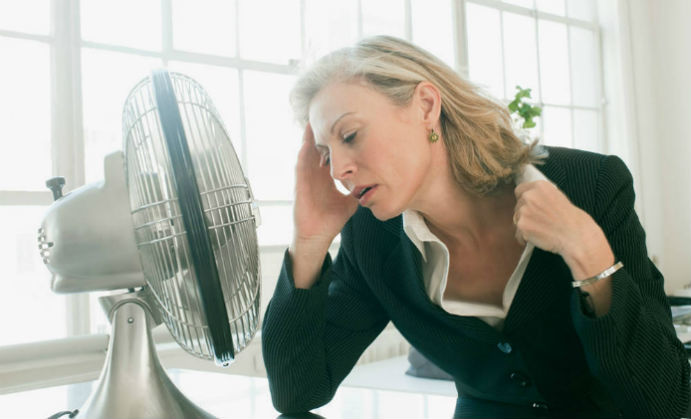Menopause is a natural stage in a woman’s life. It is caused by several factors like age, genetics, and lifestyle. While it is normal for a woman to enter the menopausal stage once they reach a certain age, the experiences differ for each individual. Some may barely feel the effects of the sudden shift in hormones caused by menopause, while others will experience a less than pleasant effect. One of the most common effects of menopause is weight gain.
There are four stages of hormonal changes that happen throughout a woman’s life. These are the premenopause, perimenopause, menopause, and postmenopause stages.
- Premenopause – This stage begins during a woman’s puberty, from her first menstruation to her last. This stage usually last for 30 to 40 years.
- Perimenopause – This is the stage when a woman is nearing their menopause. During this stage, their hormone levels can shift widely with estrogen levels becoming unstable and the progesterone levels decreasing significantly. Perimenopause may start around as early as mid-30’s to early 50’s. There are several symptoms of perimenopause including:
- Sleep disorders
- Headaches
- Hot flashes
- Mood changes
- Irregular menstrual cycles
- Weight gain
 Menopause – A sign that menopause has occurred is when menstruation has stopped completely for a year. On average, menopause occurs in women who are at the age of 50 and above, but earlier cases are a possibility. Perimenopause is considered by many women to be the worst of the four stages, but there are instances when the symptoms only intensify during the menopausal stage.
Menopause – A sign that menopause has occurred is when menstruation has stopped completely for a year. On average, menopause occurs in women who are at the age of 50 and above, but earlier cases are a possibility. Perimenopause is considered by many women to be the worst of the four stages, but there are instances when the symptoms only intensify during the menopausal stage.- Postmenopause – Postmenopause and menopause are actually interchangeable as both begin once menstruation has stopped for 12 months.
Weight Gain and Menopause
The sudden change in hormone levels can lead to several side effects. The most common of which is weight gain. This is due to several contributing factors. For example, postmenopausal and menopausal women are usually less active, in part due to their age, and the reduction of daily energy consumption can lead to decreased muscle mass.
 Menopause can also affect the body’s insulin levels and resistance which can result in faster weight gain and an increased risk of developing heart disease. Hormone replacement therapy can be considered as a remedy to this, but further studies are still needed for it to be recommended. Keep in mind that not all women experience menopause the same. While some find it excruciatingly awful, other women barely feel any difference.
Menopause can also affect the body’s insulin levels and resistance which can result in faster weight gain and an increased risk of developing heart disease. Hormone replacement therapy can be considered as a remedy to this, but further studies are still needed for it to be recommended. Keep in mind that not all women experience menopause the same. While some find it excruciatingly awful, other women barely feel any difference.
Preventing Menopause Weight Gain and Other Symptoms
There is no way to avoid menopause, but that doesn’t mean you should just grit your teeth and take the punishment. There are several ways to help reduce symptoms and the best time to do these preventive measures is during your younger years.
- Reducing Daily Carb Consumption – Calorie counting can help you in this regards. This basically means that you consume food that is relative to your daily energy expenditure. This prevents fat build up.
- Increase Fiber Intake – Increasing daily fiber intake can help balance out your insulin sensitivity and can help you regulate bowel movements.
- Exercising Daily – As we grow older, our muscle mass takes a dive. Counteract this by performing strength exercises daily in order to maintain lean muscles and strength.
- Relax – Stay away from stress. You can go about this method anyway you want from meditating, yoga exercises, or any activity that you find relaxing. Having the right amount of sleep is also a key factor that you should take into account.
Do you want to find an effective Menopause treatment? Check out our top rated Menopause products











